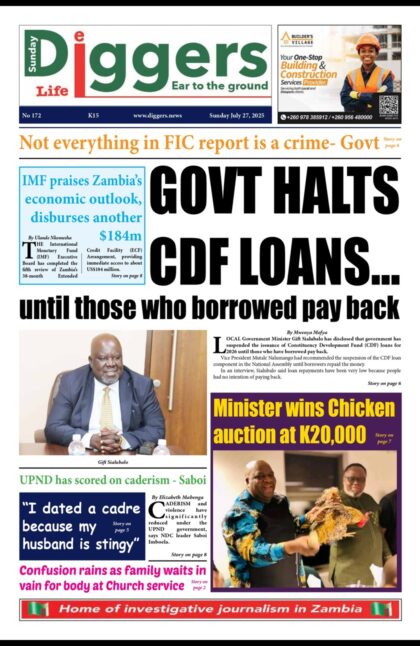Government’s 30 ngwee a day tariff on Internet calls could lead to double-billing consumers, the Zambia Chamber of Commerce and Industry (ZACCI) has warned.
Commenting on the Statutory Instrument (SI) that introduced a 30 ngwee a day tariff on Internet calls, ZACCI president Michael Nyirenda stated that the move could lead to double-billing owing to the fact that consumers are already subjected to paying for bundles.
He also feared the Internet tariff will lead to an increase in the cost of doing business.
“ZACCI has reservations because it adds to the cost of doing business. Further, any possibility of double billing or double taxation for users must be avoided given when one buys a data bundle it grants them the leverage to use the same for either voice e.g. WhatsApp calls or texting e.g. WhatsApp messaging. Thus, we suspect that the consumer will be charged both on the top-end as well as on the lower-end,” Nyirenda stated in a press release issued in Lusaka.
“The anomaly we find as a private sector is that it is not possible to use WhatsApp and Facebook without a telecommunications/network provider through their designed product packages where some include data packages permitting multiple services.”
He noted that government appeared to believe calls made via social media platforms were free when in fact not.
“However, by introducing the tariff on Internet phone calls, it appears that government is somewhat assuming that a data-call is free. WhatsApp calls appear to be free when viewed from the perspective of government, but they are not free when viewed from the perspective of the consumer. The consumer/caller has to have a valid Internet bundle they would have purchased from Airtel/MTN/ Zamtel in order to make that call,” Nyirenda explained.
“Taxes are paid by the caller on that purchase. Taxes are collected on airtime and this is where data bundles come from, introducing a tariff only double taxes the product.”
He appealed to government to confront the factors constraining ICT sector growth other than double-billing consumers.
“At this stage we recommend that government confronts the elements that are causing the constraints in real-ICT growth, which has seen poor service delivery vis-à-vis quality of service calls and the targeting of the ICT sector as a cash-cow,” he said.
“As an immediate intervention, we call upon the government to undertake the following measures: restructure Zamtel by splitting/unbundling the organisation into three real profit-making units i.e. Mobile GSM company, fixed line company and fibre & tower infrastructure company. All 3 must be allowed to run profitably with independent boards and options to attract private sector finance. The organisation is believed to be technically insolvent and government cannot continue subsidizing a loss-making entity.”
He further pleaded for government to reconsider waiving the Internet 30 ngwee charge, warning of its consequences.
“The measure of introducing a 30-ngwee cost on Facebook/WhatsApp calls is far from what we should be addressing at this point. We encourage government to confront the elephant in the room. It’s the failing public utility and monopolistic structures in the sector, where an ISP is paying over US $1,500/month for tower space that should be less than US $600/month. Coupled with the high tax rates, the costs of communication cannot come down and the 30-ngwee will just be passed on to the consumers,” stated Nyirenda.
“The point ZACCI continues to raise is that the Zambian authorities know the cost of finance and taxation is very high. We request for a holistic review of the cost elements in the ICT sector and promotion of increased fair-competition for the government, service providers and users.”



















